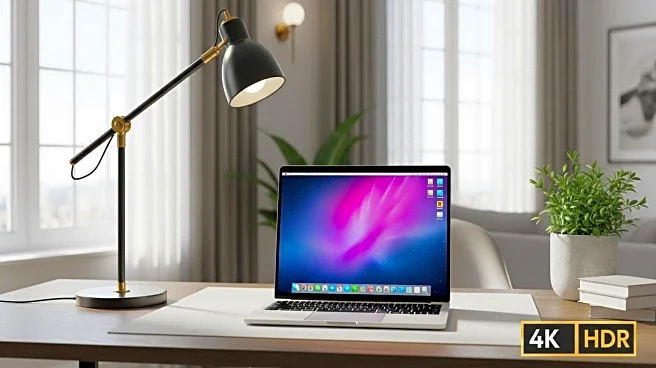What is the story about?
What's Happening?
Several young tech founders have adapted their living spaces into multifunctional environments that serve both as homes and offices. This trend is exemplified by Regina Lin, cofounder of ThirdLayer, who operates out of a live/work-zoned loft previously occupied by another startup. The loft features a communal area for filming social videos and hosting guests, while the kitchen is often filled with dishes due to the founders' focus on work over chores. Lin, along with other founders, utilizes unconventional sleeping arrangements, such as sleeping on a company couch for a few hours before retreating to her bedroom. These setups reflect a commitment to their startups, with founders like Jackson Stokes of TrainLoop spending extensive hours at the office, leaving little time for traditional home life.
Why It's Important?
The integration of living and working spaces by tech founders highlights a shift in work-life balance, particularly in the startup ecosystem. This approach can lead to increased productivity and dedication to business goals, but it also raises concerns about personal well-being and burnout. The lack of separation between work and home life may affect mental health and social interactions, as founders prioritize business needs over personal space. This trend could influence broader industry practices, encouraging other entrepreneurs to adopt similar setups, potentially reshaping norms around work environments and lifestyle choices in the tech sector.
What's Next?
As this trend continues, it may prompt discussions on the sustainability of such living arrangements and their impact on founders' health and productivity. Stakeholders, including investors and industry leaders, might explore ways to support founders in maintaining a healthier work-life balance. Additionally, there could be a push for more flexible housing solutions that cater to the unique needs of startup founders, balancing the demands of entrepreneurship with personal well-being.
Beyond the Headlines
The blending of living and working spaces raises ethical questions about labor practices and the expectations placed on young entrepreneurs. It challenges traditional notions of work-life separation and may lead to long-term cultural shifts in how work environments are structured. This development could also influence urban planning and real estate markets, as demand for live/work spaces increases.















